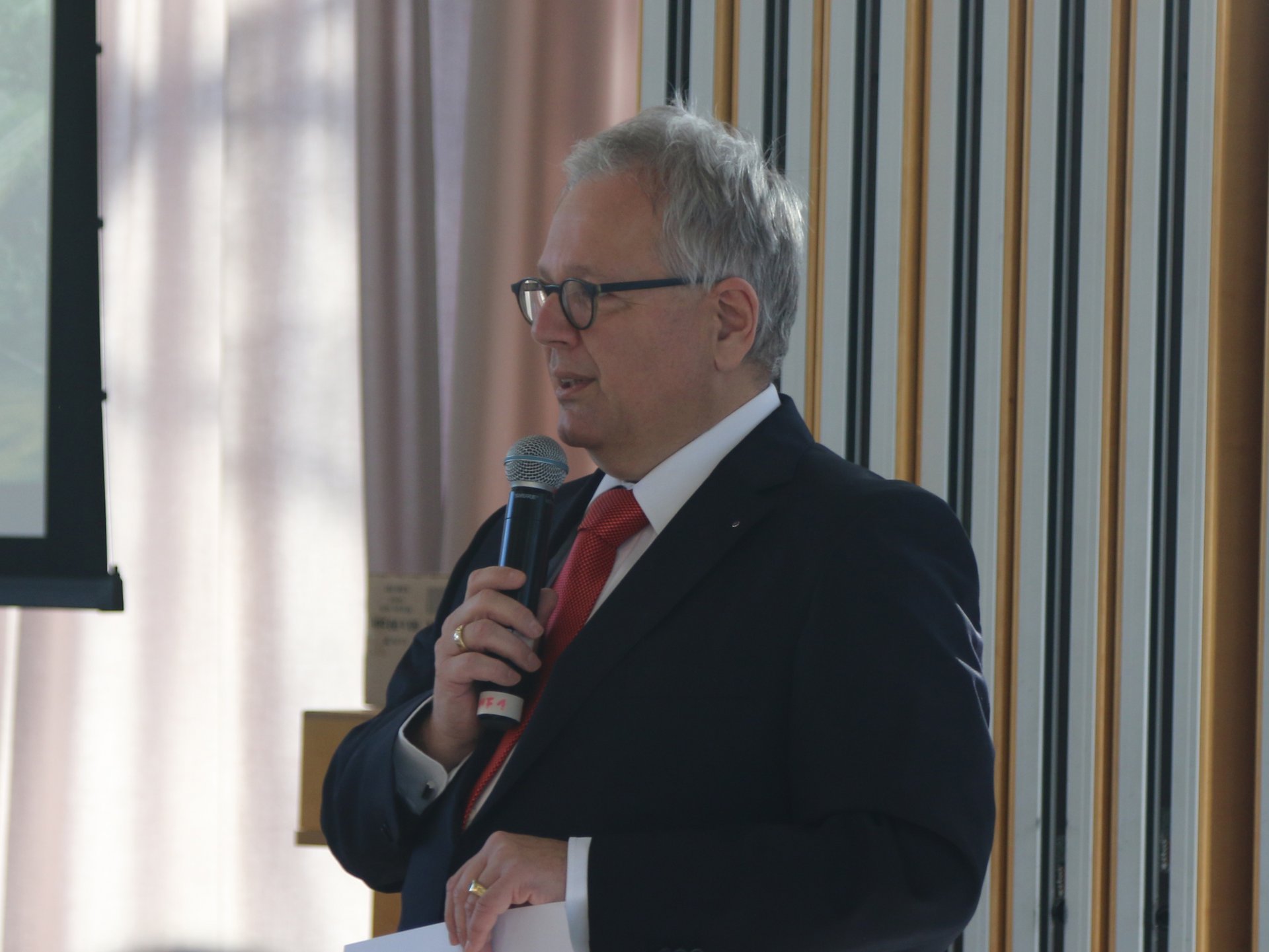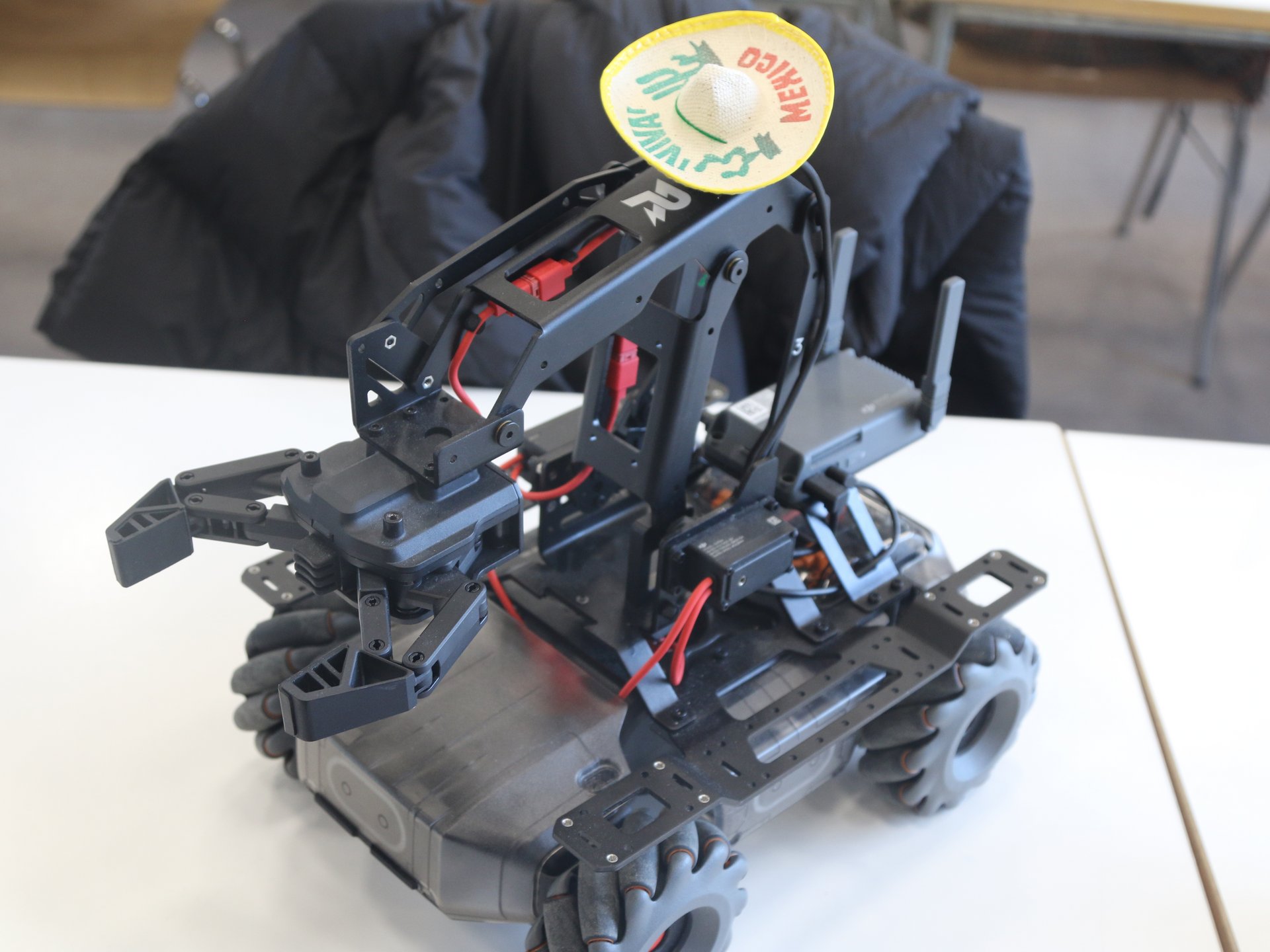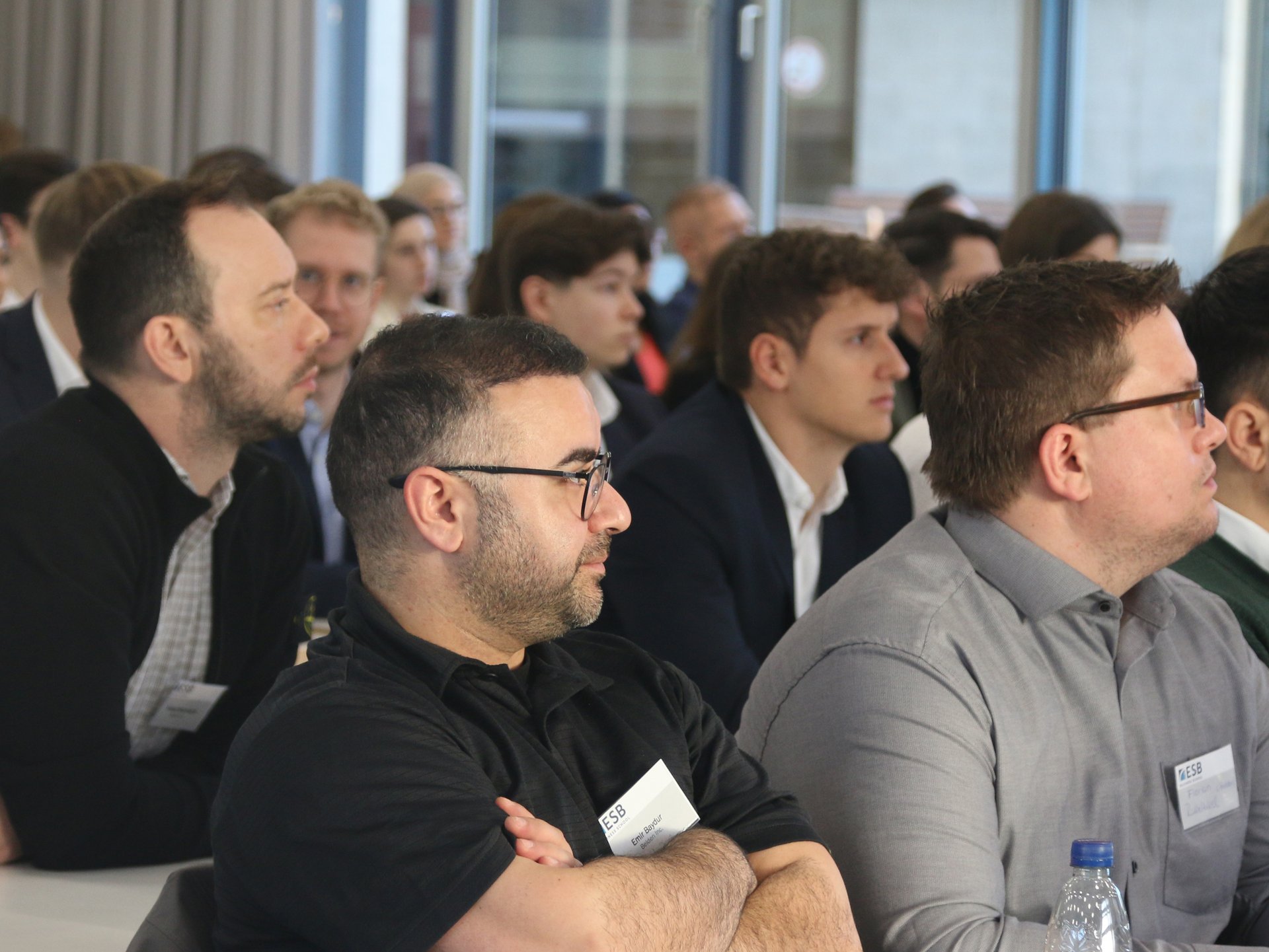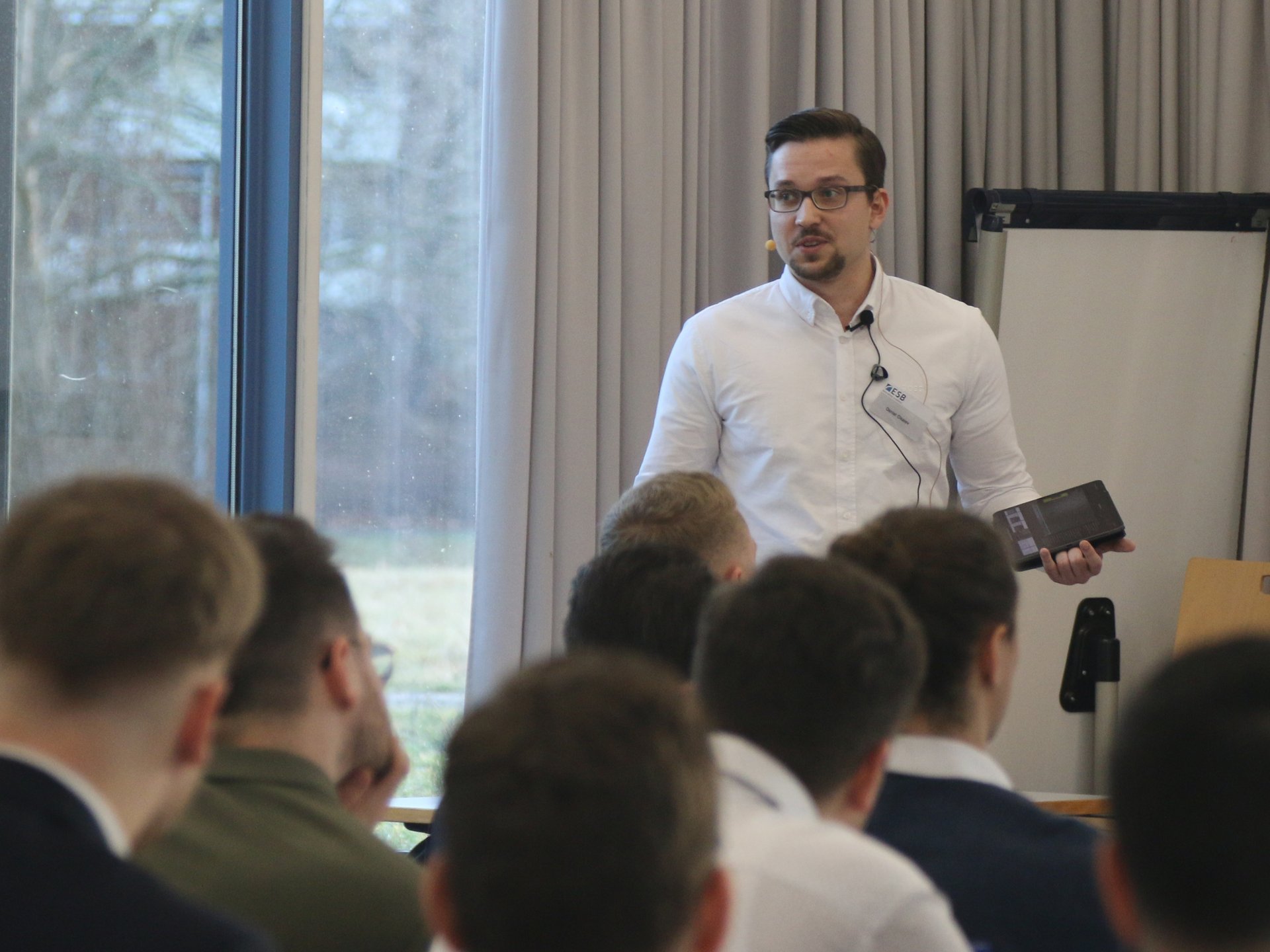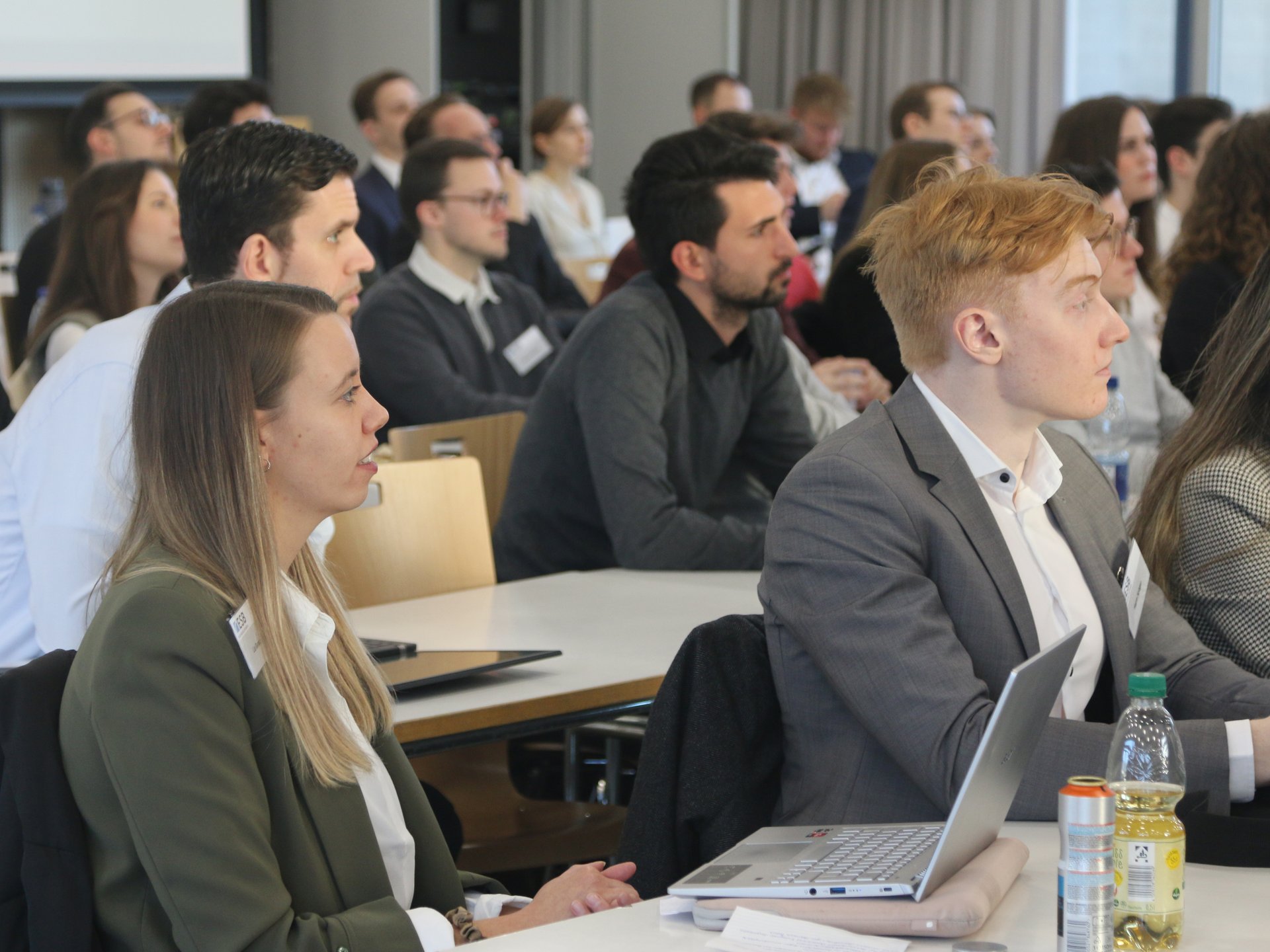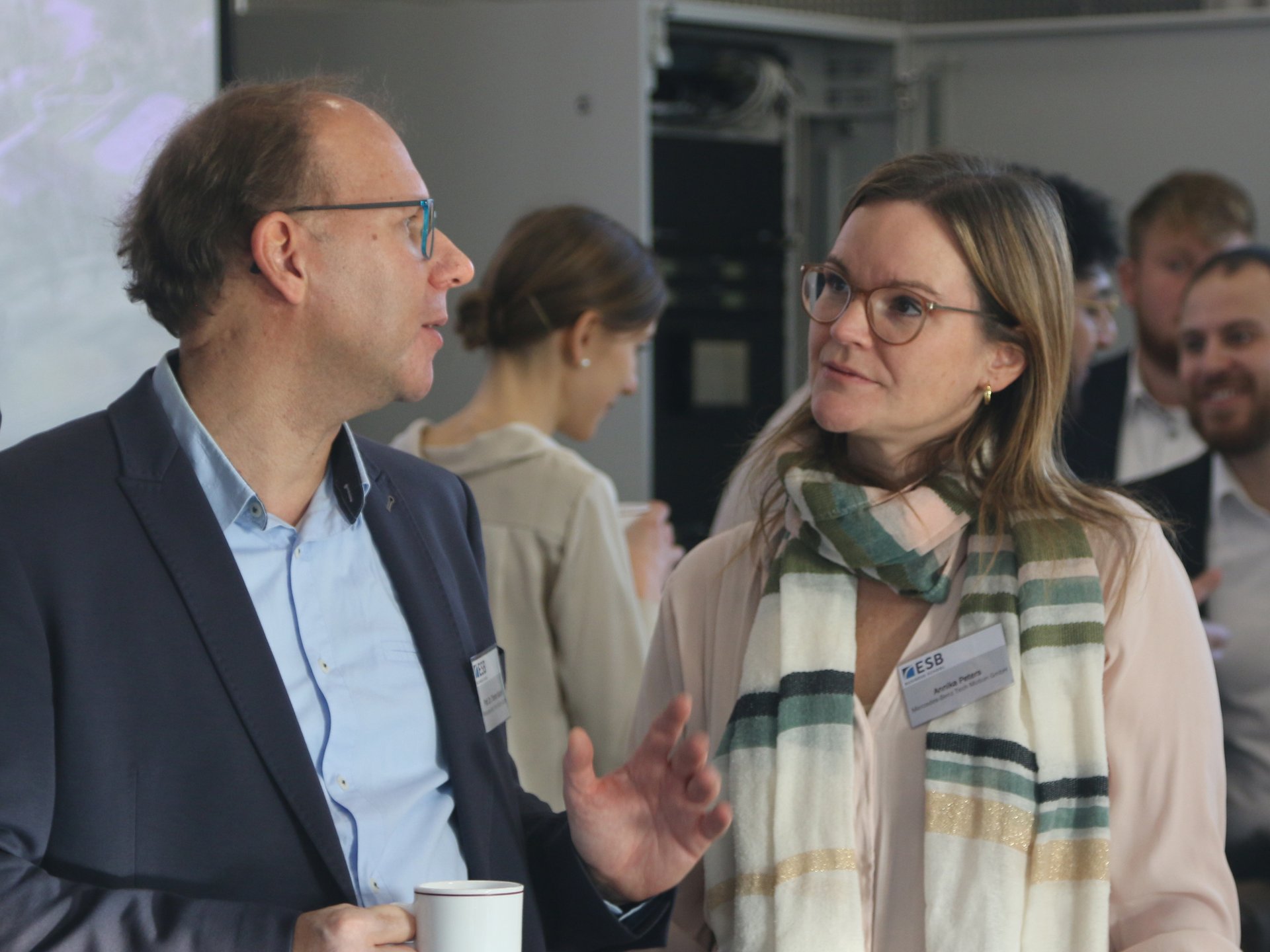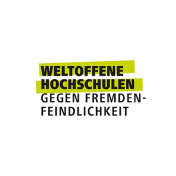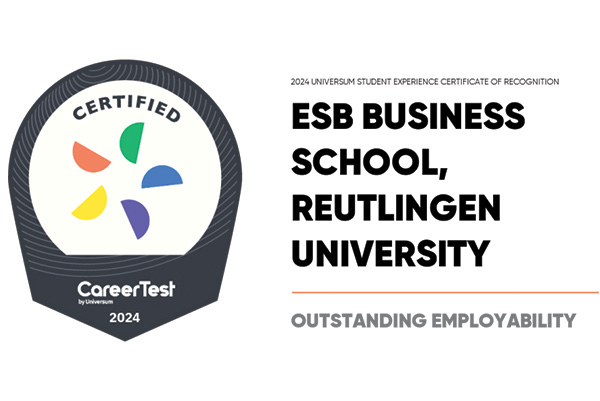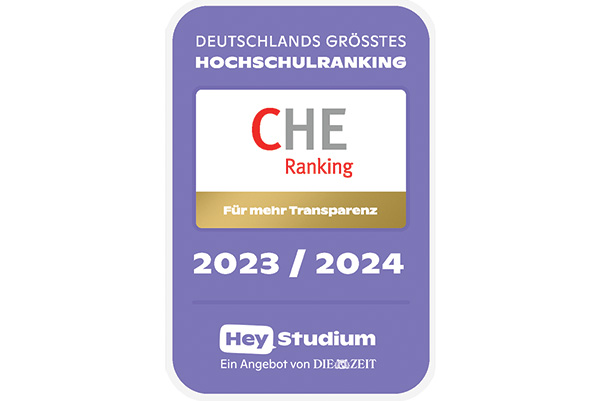Innovations for exciting times
![[Translate to English:] [Translate to English:]](/fileadmin/_processed_/b/9/csm_20240125_MOM_Projektpraesentation_WiSe_2324__7__5088686786.jpg)
With shortages of resources, rising customer expectations, digitalisation and the effort to achieve sustainability, companies are constantly pulled in multiple directions. MSc Operations Management (MOM) semester projects help partner companies to cope with complex issues by providing student input and innovations. This semester there were yet again several sudden insights for the supervising professors and fellow students, as well as for the partner companies, during the project presentations.
The students’ developments included new supply chain concepts, governance mechanisms for value chains, and a vision of the ‘Factory of the Future’. Put simply, MSc Operations Management students dived deep into corporate practice on their semester projects and combined their findings with theoretical knowledge from their lectures. The companies in turn profited from the latest academic concepts and fresh ideas from the project teams.
Here, we introduce the MSc Operations Management project groups and their work:
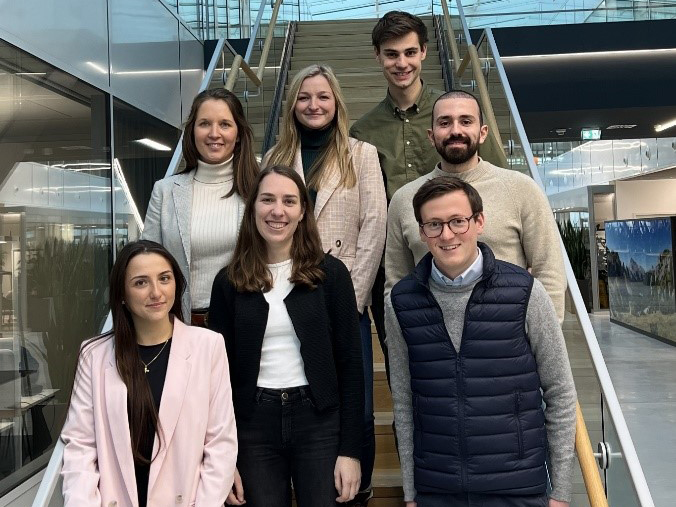
In this volatile, uncertain, complex and ambiguous time, the integration of smarter components in the planning and realisation of supply chains is increasingly important. ANDREAS STIHL AG & Co. KG also faces numerous challenges, such as rapidly changing market trends, growing global competition, and the need to optimise operative procedures. This situation demands a data-based solution to be able to take rapid, efficient and strategic decisions. STIHL is reliant on the ongoing development of digital processes and structures in order to respond successfully to future challenges. Through STIHL’s cooperation with the Operations Management Master’s degree programme at ESB Business School, the students developed new, innovative solutions for various logistics processes, thereby creating added value for the STIHL group. The goal of the team of seven was to redevelop STIHL’s dispatch system into a ‘Smart Dispatch 2.0’.
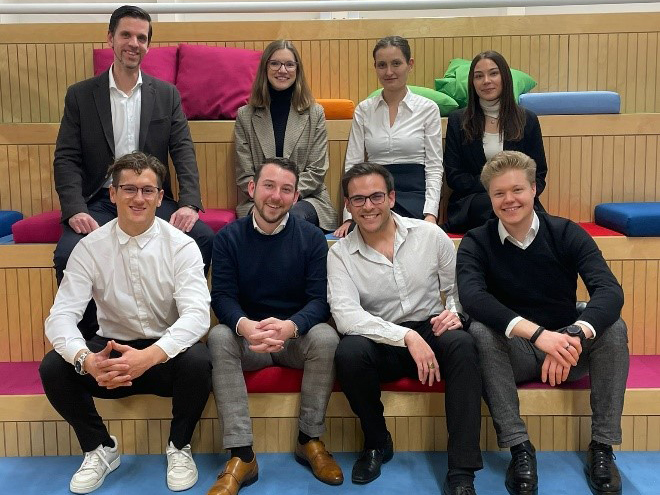
Belden Inc., a listed United States company, has three operational divisions: Industrial Automation Solutions (IAS), Smart Building Solutions and Broadband Solutions. Its manufacturing site at Neckartenzlingen specialises in IAS and among other things produces electronics.
The MOM semester project, supervised by Professor Jochen Hartung, focused on designing a forward-looking production system with optimised layout of the machining cells and routing. Using the visTABLE factory layout design software, the project team recorded the existing situation and gathered data on the value streams. Based on this information and the digital depiction of the production, the students then developed three potential layout concepts offering different priorities. A specially-developed grading system and relevant key indicators enabled an informed decision. A detailed implementation plan was then developed to enable realisation of the chosen concept.
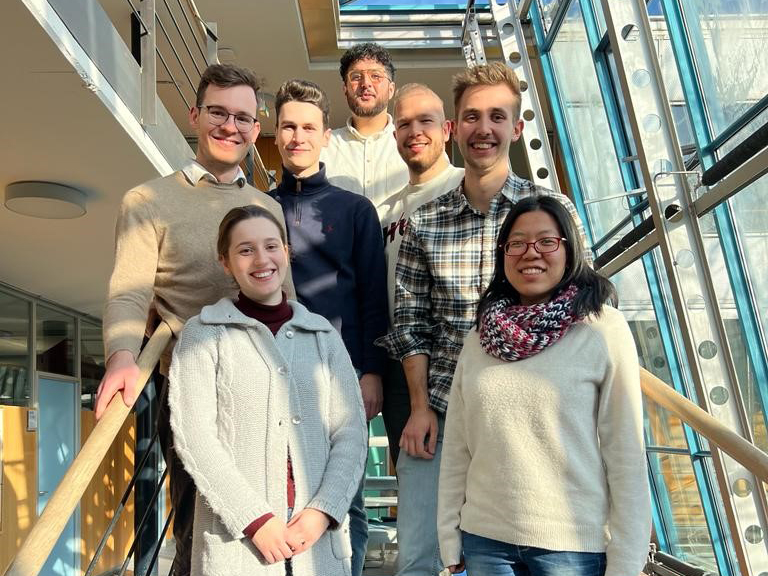
Founded in 2013 under the name of Bettzeit and renamed in 2015 as the Emma brand, Emma Sleep GmbH sells mattresses beds and other sleep accessories worldwide. To increase the transparency of the supply chain and create a sound basis for decision-making for their project partner, the team of seven had the task of designing and implementing a supply chain control-tower – a networked, personalised dashboard with data about the entire supply chain – for Emma. Their focus was on the interfaces in the company’s end-to-end supply chain, as well as with other internal stakeholders. Following a comprehensive review and analysis of the existing processes, they first of all prioritised the data interfaces and the key indicators. This enabled the development of a logic which was technically implemented and documented in the final phase of the project.
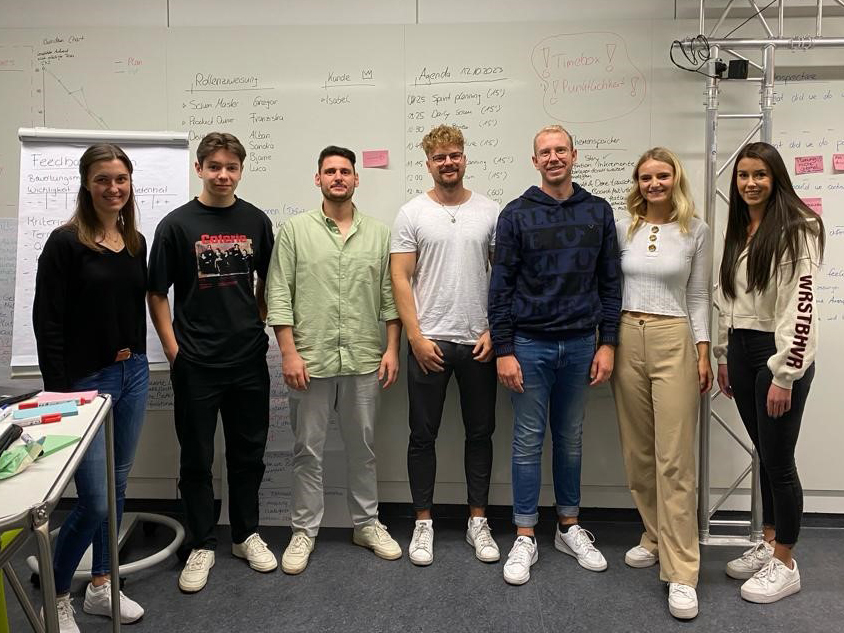
A joint project by the Fraunhofer Institute for Industrial Engineering (IAO) and the ESB Business School, Reutlingen University, led to seven students researching for an entire semester on the subject of governance of networked value creation.
Digital transformation is changing how companies pursue value creation. The study, which was based on both a literature review and expert interviews, analysed the transition from traditional, hierarchical value chains to dynamic, networked multi-actor systems. This transition is also bringing about a change in the role of the customer, who is an increasingly active partner in value creation systems. Five governance mechanisms identified in the course of the study are therefore crucial to successful cooperation in value creation systems: transparency, trust, contracts, data sovereignty and exit plans.
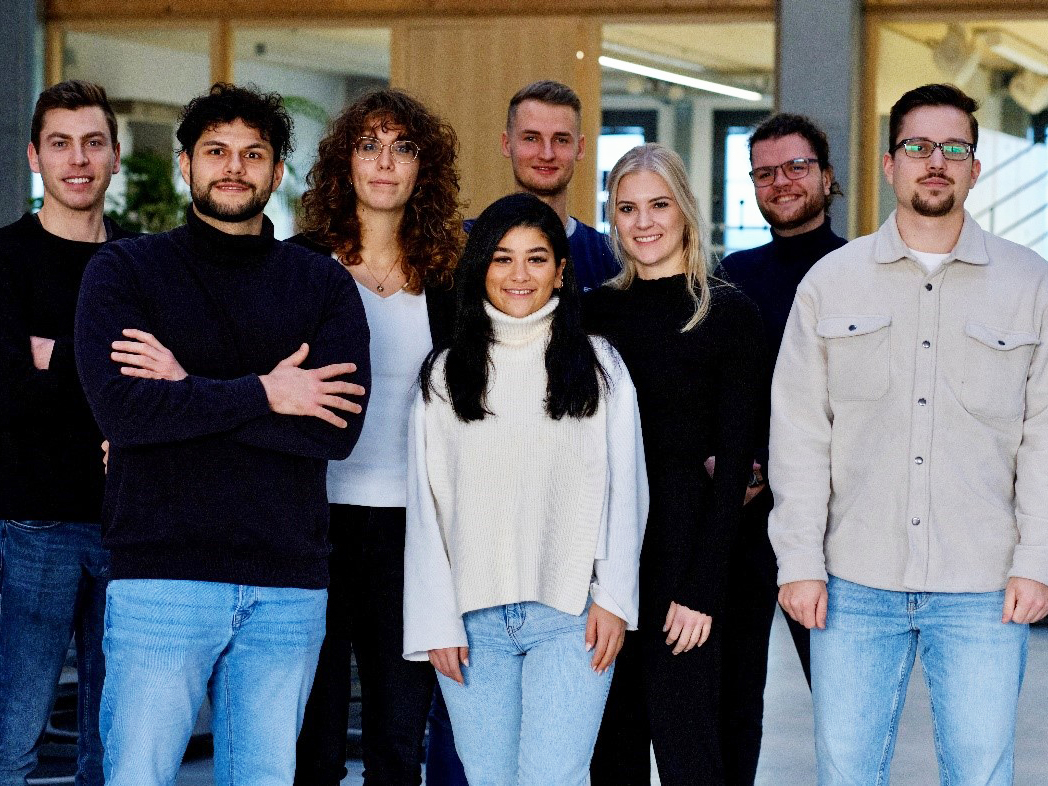
Global development poses major challenges for companies, a situation that is bound to continue. There is more and more pressure on commissioning processes from growing demand in e-commerce. Extensive ranges of all kinds of articles in every shape and size need to be handled and shipped to customers in the shortest possible time. One promising solution here is the ‘Greif and Drive’ concept of Helmut Schmidt University (HSU) Hamburg. By implementing mobile, automated material flow elements, this offers the flexibility needed to meet the demands of e-commerce. The project group, consisting of eight students from the Operations Management degree programme, had the task of analysing and identifying specific applications, then visualising and animating them. The HSU’s concept was considered in depth for the project and its efficiency was compared and assessed alongside standard approaches to commissioning. The project group also developed a guide for measuring the efficiency of commissioning systems.
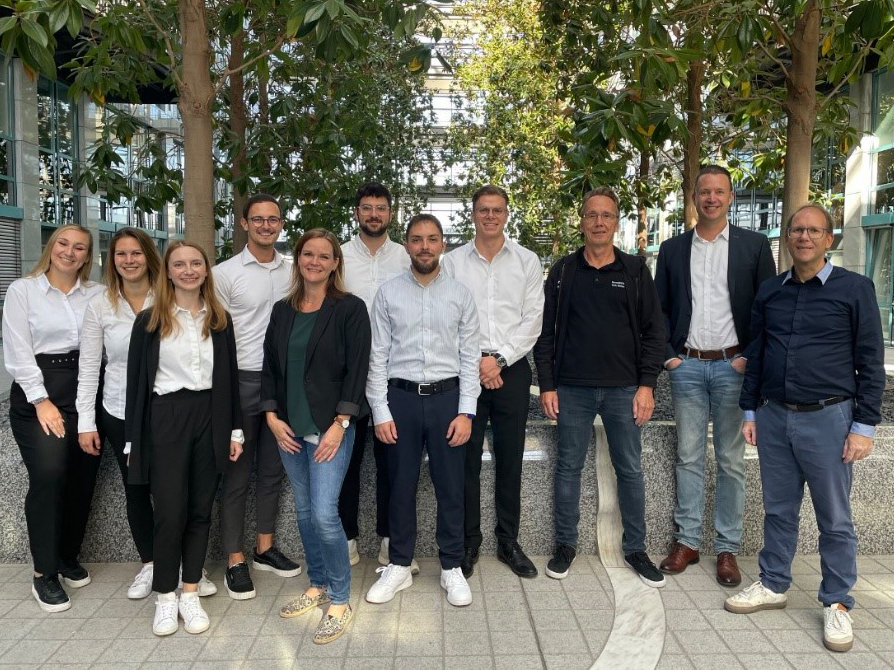
Advancing digitalisation and Industry 4.0 mean that the concept of a ‘digital twin’ has become increasingly important in the world of work. For an MSc Operations Management semester project, seven students in cooperation with Mercedes-Benz Tech Motion GmbH, a subsidiary of Mercedes-Benz Group AG, engaged intensively with the concept of a digital twin. They especially focused on looking at the challenge as outsiders without longstanding experience at Mercedes-Benz, to bring their own objective observations and fresh eyes.
To begin with, they undertook extensive research, with a focus on identifying existing twin platforms and infrastructure and conducting a benchmark analysis, i.e. which platforms and tools are used by leading OEMs (Original Equipment Manufacturers). Key technologies were studied and economic aspects, especially business values, considered in depth.
Taking these findings, the project team then developed a concept for the digital twin of the RoboMaster EP Core throughout its product lifecycle.
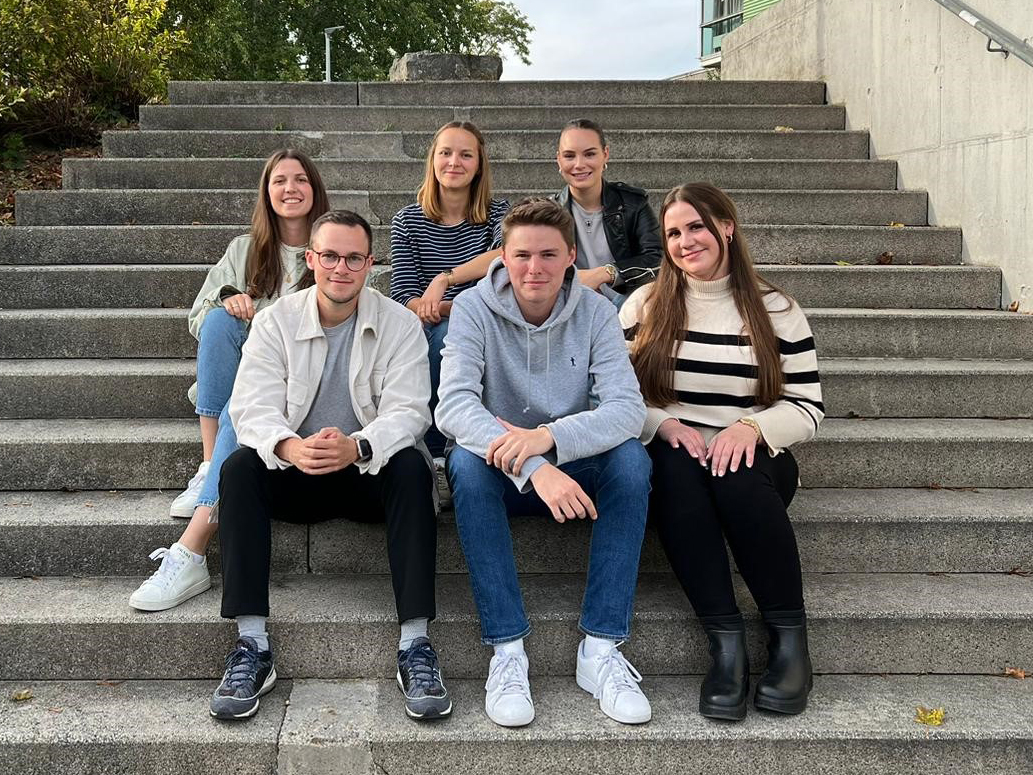
The MOM team together with Theben AG, a specialist in KNX, automatic timers and motion sensors, launched a project to revolutionise the production processes through digitalisation of Theben’s KPI control system.
The aim was not just to provide real-time information on mobile devices, but also to enable individual KPI displays.
The students analysed the existing situation, visualised KPIs and drew up KPI profiles in order to identify potential for improvement and develop a concept for an ideal state. Relevant documentation served as a guide for the company that was commissioned with implementation.
The project optimised production processes and with the new KPI control system points the way ahead for the digital future of building technology. It increases transparency and efficiency and positions Theben as an innovator in the industry.
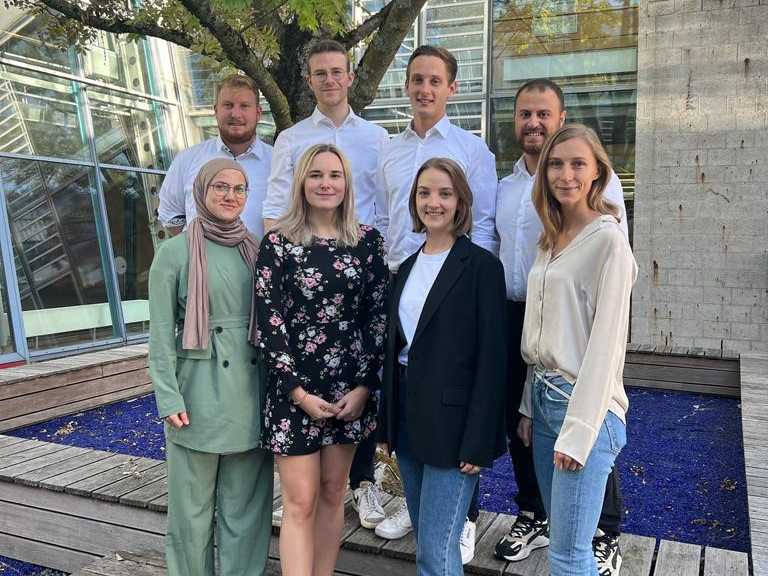
In these times of diminishing resources, ongoing climate change and rising customer expectations with regard to the use of resources and energy efficiency, companies are increasingly having to deal with these issues.
Since it was founded more than 100 years ago, Theben AG has been committed to the prudent use of energy and has driven the development of energy-saving technological solutions. Their products are intended to reduce electricity consumption and make energy available at the right time. However, at present it is hard for Theben to quantify the ecological footprint of its products throughout their entire lifecycle.
This was the background to a team of eight from MSc Operations Management being entrusted with the task of ensuring that sustainability at a product level is transparent, and developing proposed actions for an external declaration, to improve the positioning of the product portfolio on the market. From the experiences they gained, the Master’s students developed a practice-based guide on issuing data-based sustainability declarations, so as to provide greater transparency in this complex field and place Theben AG in a strong position to handle future developments.
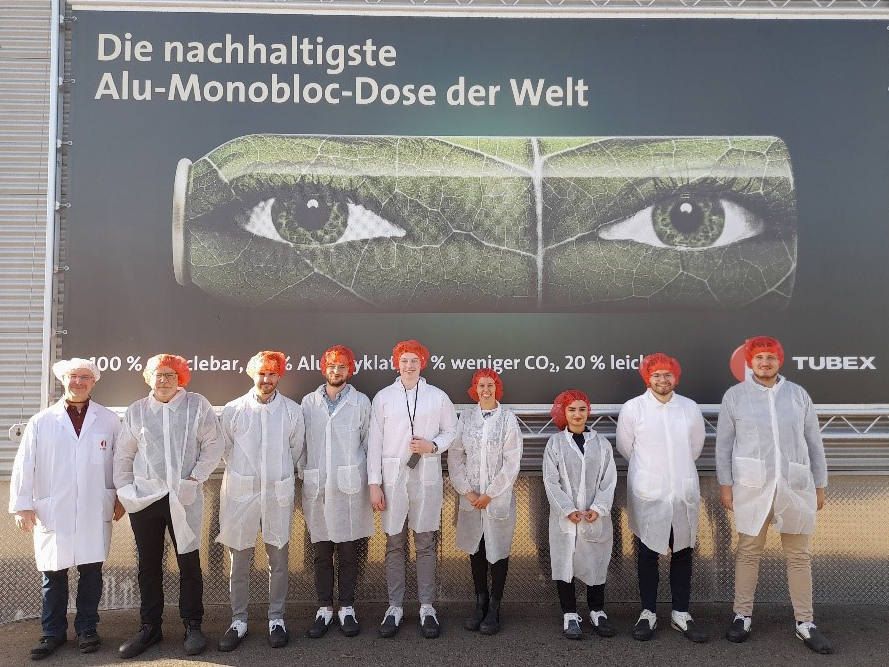
A seven-strong team of students from MOM working with Tubex GmbH jointly developed a future vision for the aerosol spray factory in Rangendingen. In an age of constantly changing customer expectations and increased cost pressure, a clear future vision is crucial. In order to develop such a vision and then identify areas for action, the students analysed the factory. The final vision is called ‘The Rangendingen Factory of the Future – efficient, conscientious and networked’. It is based on three pillars which are measured using Key Performance Indicators. In order to realise the vision, concrete measures were then defined and mapped. One key area is innovative shopfloor management, which enables better communications by directly involving management and employees in the value-creation process. To overcome the skills shortage, another key area is automating the factory. The vision of the Factory of the Future is the result of a successful cooperation between Tubex and the students to create a sustainable and innovative aerosol spray production system ‘Made in Germany’.
